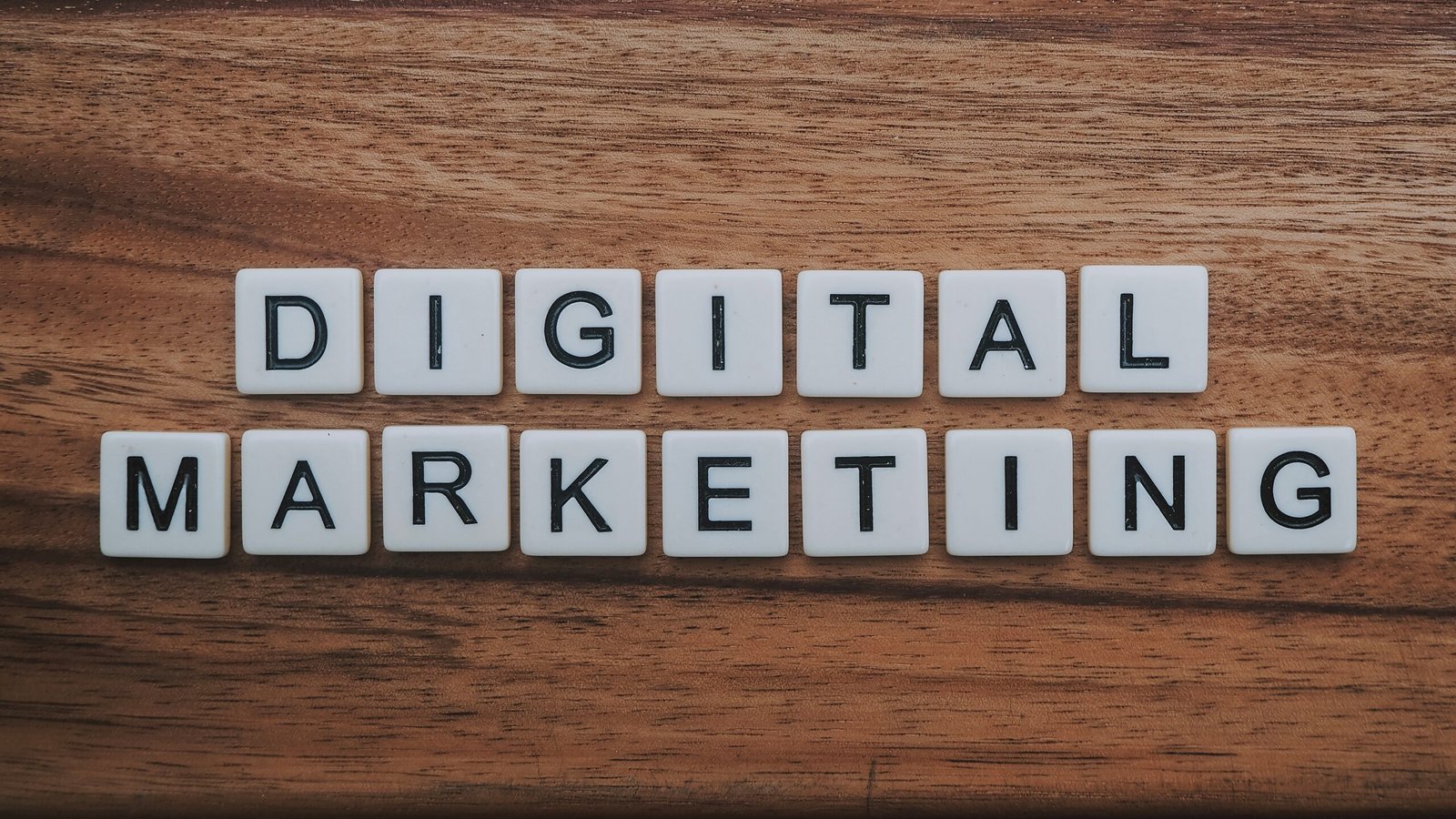
Photo by <a href="https://unsplash.com/@diggitymarketing" rel="nofollow">Diggity Marketing</a> on <a href="https://unsplash.com/?utm_source=hostinger&utm_medium=referral" rel="nofollow">Unsplash</a>
Welcome to our comprehensive guide on digital marketing! In this article, we will unlock the secrets of digital marketing and provide you with proven strategies, tactics, and tools to help you grow your online presence, attract more customers, and maximize your return on investment (ROI).
Whether you’re a beginner just starting out in the world of digital marketing or a seasoned marketer looking to stay ahead of the competition, our expert insights and practical tips will help you achieve your digital marketing goals.
Digital marketing has become an essential component of any successful business strategy in today’s digital age. With the increasing reliance on the internet and mobile devices, businesses need to adapt and embrace digital marketing to reach their target audience effectively. Traditional marketing methods alone are no longer sufficient to keep up with the ever-evolving consumer behavior and the rapid advancements in technology.
Our guide will cover various aspects of digital marketing, including search engine optimization (SEO), social media marketing, content marketing, email marketing, pay-per-click (PPC) advertising, and more. We will delve into each topic in detail, providing you with a comprehensive understanding of how to leverage these strategies to drive traffic, generate leads, and increase conversions for your business.
Throughout the guide, we will share real-life case studies and success stories from businesses that have implemented digital marketing effectively. These examples will serve as inspiration and provide you with practical insights into how to apply the strategies and tactics discussed.
Furthermore, we will highlight the latest trends and emerging technologies in the digital marketing landscape. From artificial intelligence (AI) and machine learning to voice search and chatbots, we will explore how these advancements are shaping the future of digital marketing and how you can stay ahead of the curve.
Our team of digital marketing experts has years of experience in the field and a deep understanding of the ever-changing digital landscape. We have meticulously crafted this guide to provide you with the most up-to-date and actionable information to help you succeed in your digital marketing endeavors.
So, whether you’re a business owner, a marketing professional, or an aspiring digital marketer, get ready to embark on a journey that will transform your understanding of digital marketing and equip you with the knowledge and tools to drive your business forward in the digital world.
Why Digital Marketing Matters
In today’s digital age, having a strong online presence is crucial for businesses of all sizes. With the increasing number of people using the internet to search for products and services, digital marketing has become an essential tool for reaching and engaging with potential customers.
Digital marketing offers a wide range of benefits over traditional marketing methods. It allows you to target specific audiences, measure the effectiveness of your campaigns, and adjust your strategies in real-time. With the right digital marketing strategies in place, you can drive more traffic to your website, generate leads, and ultimately increase your sales and revenue.
One of the key advantages of digital marketing is its ability to target specific audiences. Unlike traditional marketing methods, such as television or print advertisements, digital marketing allows you to reach people who are actively searching for products or services similar to what your business offers. Through techniques like search engine optimization (SEO) and pay-per-click (PPC) advertising, you can ensure that your business appears in front of the right people at the right time.
Another benefit of digital marketing is the ability to measure the effectiveness of your campaigns. With traditional marketing methods, it can be difficult to determine how many people have seen your advertisement or how many have taken action as a result. However, with digital marketing, you can track the number of impressions, clicks, and conversions your campaigns generate. This data allows you to make data-driven decisions and optimize your marketing efforts for better results.
Additionally, digital marketing allows you to adjust your strategies in real-time. If you notice that a particular campaign is not performing as well as expected, you can make changes on the fly. Whether it’s tweaking the messaging, adjusting the targeting parameters, or reallocating your budget, digital marketing provides the flexibility to adapt and improve your strategies as needed.
Furthermore, digital marketing offers a level of cost-effectiveness that is unmatched by traditional marketing methods. With digital marketing, you have the ability to set a budget that aligns with your business goals and only pay for the results you achieve. Whether you choose to invest in SEO, PPC advertising, social media marketing, or email marketing, you can ensure that your marketing dollars are being spent efficiently to drive the highest return on investment.
In conclusion, digital marketing is a powerful tool that can help businesses of all sizes reach and engage with their target audience. By leveraging the benefits of digital marketing, you can increase your online visibility, drive more traffic to your website, generate leads, and ultimately boost your sales and revenue. So, if you haven’t already, it’s time to embrace digital marketing and take your business to new heights in the digital world.
Email Marketing
Email marketing is a highly effective strategy for nurturing relationships with your audience and driving conversions. It involves sending targeted and personalized emails to your subscribers to keep them informed about your latest products, promotions, and updates.
With email marketing, you can segment your audience based on their interests, demographics, or past interactions with your brand. This allows you to tailor your messages to specific groups and deliver content that is relevant and valuable to them.
By crafting compelling subject lines, designing visually appealing emails, and including clear call-to-actions, you can encourage your subscribers to take the desired action, whether it’s making a purchase, signing up for a webinar, or downloading a free resource.
Influencer Marketing
Influencer marketing involves partnering with influential individuals in your industry to promote your brand and products. These influencers have a large and engaged following on social media platforms or their own blogs, and their endorsement can greatly impact the purchasing decisions of their audience.
When implementing an influencer marketing strategy, it’s important to identify influencers whose values align with your brand and whose audience matches your target market. By collaborating with influencers, you can leverage their credibility, reach, and expertise to increase brand awareness, drive traffic to your website, and generate sales.
Affiliate Marketing
Affiliate marketing is a performance-based strategy where you partner with affiliates who promote your products or services in exchange for a commission for each sale or lead they generate. Affiliates can be individuals, bloggers, or businesses with an established online presence.
By offering attractive commission rates and providing affiliates with marketing materials and tracking tools, you can motivate them to promote your brand and drive traffic to your website. Affiliate marketing can be a cost-effective way to expand your reach and tap into new markets.
Overall, understanding digital marketing strategies is essential for achieving your online goals. By implementing a combination of these strategies and continuously analyzing and optimizing your campaigns, you can effectively reach and engage with your target audience, drive traffic to your website, and ultimately grow your business.
Choosing the Right Digital Marketing Tactics
Once you have identified the digital marketing strategies that align with your business objectives, it’s time to choose the right tactics to implement those strategies effectively. Digital marketing tactics are the specific actions you take to execute your strategies and achieve your goals.
Here are some common digital marketing tactics that you can consider:
Email Marketing
Email marketing involves sending targeted emails to your subscribers to nurture relationships, promote your products or services, and drive conversions. It is a highly effective tactic for building customer loyalty and generating repeat business.
When implementing email marketing, it’s important to segment your email list based on the interests and preferences of your subscribers. This allows you to send personalized and relevant content that resonates with your audience and encourages them to take action.
For example, if you have an e-commerce business selling clothing, you can segment your email list based on factors such as gender, age, and purchase history. This way, you can send tailored emails showcasing new arrivals or offering exclusive discounts that are relevant to each segment.
Influencer Marketing
Influencer marketing involves partnering with influential individuals in your industry to promote your brand or products. By leveraging the reach and influence of these individuals, you can increase brand awareness, reach new audiences, and build trust with your target market.
When choosing influencers to work with, it’s important to consider their relevance to your industry and their alignment with your brand values. Look for influencers who have a genuine connection with their audience and can authentically promote your products or services.
For instance, if you have a fitness brand, collaborating with fitness influencers who have a strong following and credibility in the fitness community can significantly boost your brand’s visibility and credibility. These influencers can showcase your products in their content, provide honest reviews, and even offer exclusive discount codes to their followers.
Affiliate Marketing
Affiliate marketing is a performance-based marketing tactic where you pay affiliates a commission for driving traffic or sales to your website. It is a cost-effective way to expand your reach and increase your sales without upfront advertising costs.
When implementing affiliate marketing, it’s important to choose affiliates who have an audience that aligns with your target market. Provide them with the necessary resources and support to promote your products effectively, and track the performance of your affiliate campaigns to ensure a positive return on investment.
For example, if you have a software company, you can partner with technology bloggers or influencers who have a loyal following of tech-savvy individuals. These affiliates can write reviews, create tutorials, or share their personal experiences with your software, driving qualified traffic to your website and potentially increasing your customer base.
Video Marketing
Video marketing involves creating and sharing videos to promote your brand, products, or services. It is a highly engaging and memorable form of content that can capture the attention of your audience and convey your message effectively.
When creating videos, it’s important to keep them short, visually appealing, and focused on providing value to your audience. You can share your videos on various platforms, such as YouTube, social media, and your website, to maximize their reach and impact.
For instance, if you have a travel agency, you can create videos showcasing popular destinations, travel tips, and customer testimonials. These videos can inspire and educate your audience, building trust and credibility for your brand. You can also optimize your videos for search engines by using relevant keywords in the titles, descriptions, and tags, increasing their visibility and driving organic traffic to your website.
Search Engine Optimization (SEO)
Search Engine Optimization (SEO) is a crucial aspect of digital marketing that focuses on improving your website’s visibility in search engine results. SEO tools help you optimize your website’s content, structure, and keywords to rank higher in search engine rankings.
Tools like SEMrush, Moz, and Ahrefs provide valuable insights into your website’s SEO performance. They offer features such as keyword research, competitor analysis, and backlink tracking to help you identify opportunities for improvement and increase organic traffic to your website.
Social Media Management
Social media has become an integral part of digital marketing, and managing multiple social media platforms can be time-consuming. Social media management tools help you schedule posts, monitor engagement, and analyze the performance of your social media campaigns.
Popular social media management tools include Hootsuite, Buffer, and Sprout Social. These tools allow you to streamline your social media efforts, engage with your audience, and measure the effectiveness of your social media strategies.
Content Marketing
Content marketing is an essential component of digital marketing that involves creating and distributing valuable content to attract and engage your target audience. Content marketing tools help you plan, create, and distribute content across various channels.
Tools like CoSchedule, BuzzSumo, and Canva offer features such as content planning, content ideation, and graphic design to help you create compelling content that resonates with your audience and drives traffic to your website.
Email Marketing
Email marketing is a powerful tool for nurturing leads and driving conversions. Email marketing tools help you create, automate, and track email campaigns to deliver personalized messages to your subscribers.
Popular email marketing tools include Mailchimp, Constant Contact, and ConvertKit. These tools offer features such as email templates, audience segmentation, and A/B testing to help you optimize your email marketing campaigns and achieve better results.
Conclusion
Utilizing the right digital marketing tools is essential for the success of your digital marketing efforts. Whether it’s automating repetitive tasks, analyzing data, optimizing campaigns, or improving your website’s visibility, these tools can help you achieve your marketing goals more effectively and efficiently.
By leveraging the power of marketing automation, analytics and reporting, data-driven marketing, SEO, social media management, content marketing, and email marketing tools, you can enhance your digital marketing strategies and drive better results for your business.
Artificial Intelligence
Artificial Intelligence (AI) is revolutionizing the digital marketing landscape. AI-powered tools and technologies are being used to automate tasks, analyze data, and personalize customer experiences. Machine learning algorithms can analyze vast amounts of data to identify patterns and make predictions, helping marketers make data-driven decisions and optimize their campaigns.
AI can also be used to create chatbots that provide instant customer support and enhance the user experience. These chatbots can handle basic inquiries, provide product recommendations, and even complete transactions, freeing up human resources and improving customer satisfaction.
Influencer Marketing
Influencer marketing has become an integral part of many digital marketing strategies. Collaborating with influencers who have a large following and influence over their audience can help brands reach a wider audience and build credibility. Influencers can create sponsored content, promote products or services, and generate buzz around a brand.
However, it’s important to choose influencers whose values align with your brand and target audience. Authenticity and transparency are key in influencer marketing to maintain trust and credibility with your audience.
Augmented Reality
Augmented Reality (AR) is another trend that is gaining momentum in digital marketing. AR technology allows users to overlay virtual elements onto the real world, enhancing their experience and engagement with a brand. AR can be used to create interactive product demonstrations, virtual try-on experiences, and immersive brand storytelling.
By incorporating AR into your digital marketing strategies, you can provide a unique and memorable experience for your audience, increasing brand awareness and driving customer engagement.
Overall, keeping up with digital marketing trends is crucial to stay relevant and competitive in today’s fast-paced digital landscape. By staying informed and adapting your strategies accordingly, you can leverage the latest trends and technologies to enhance your digital marketing efforts and achieve your business goals.




